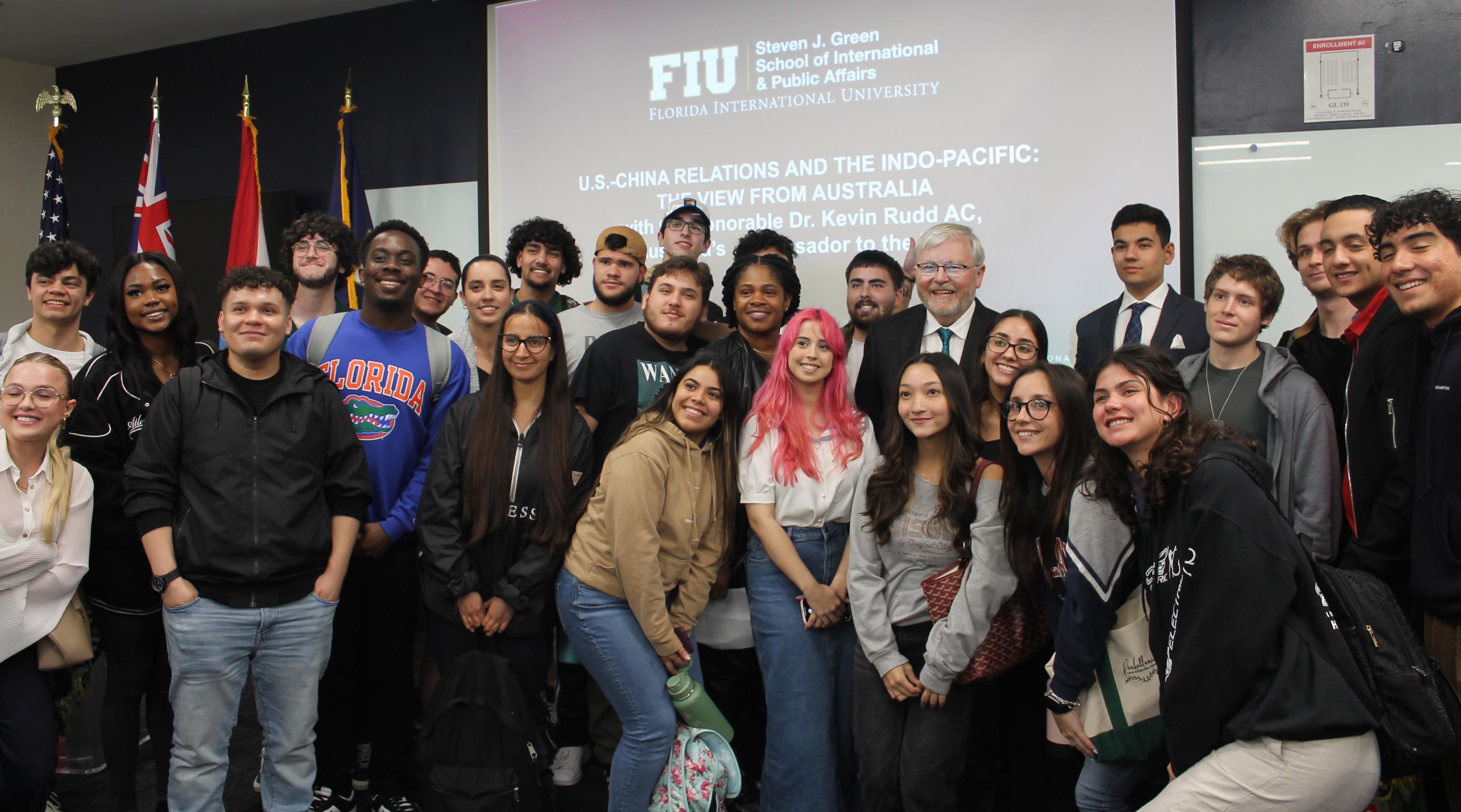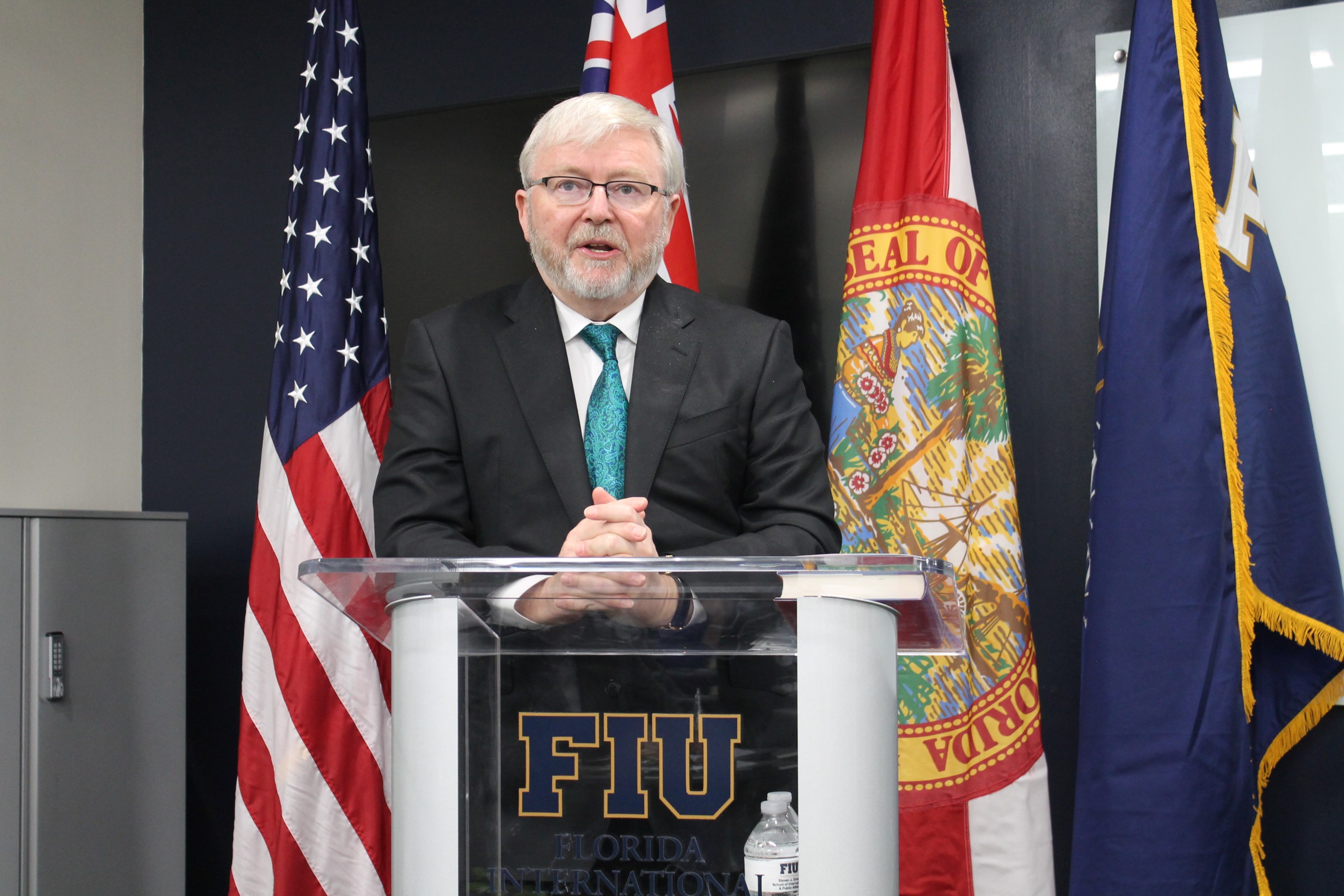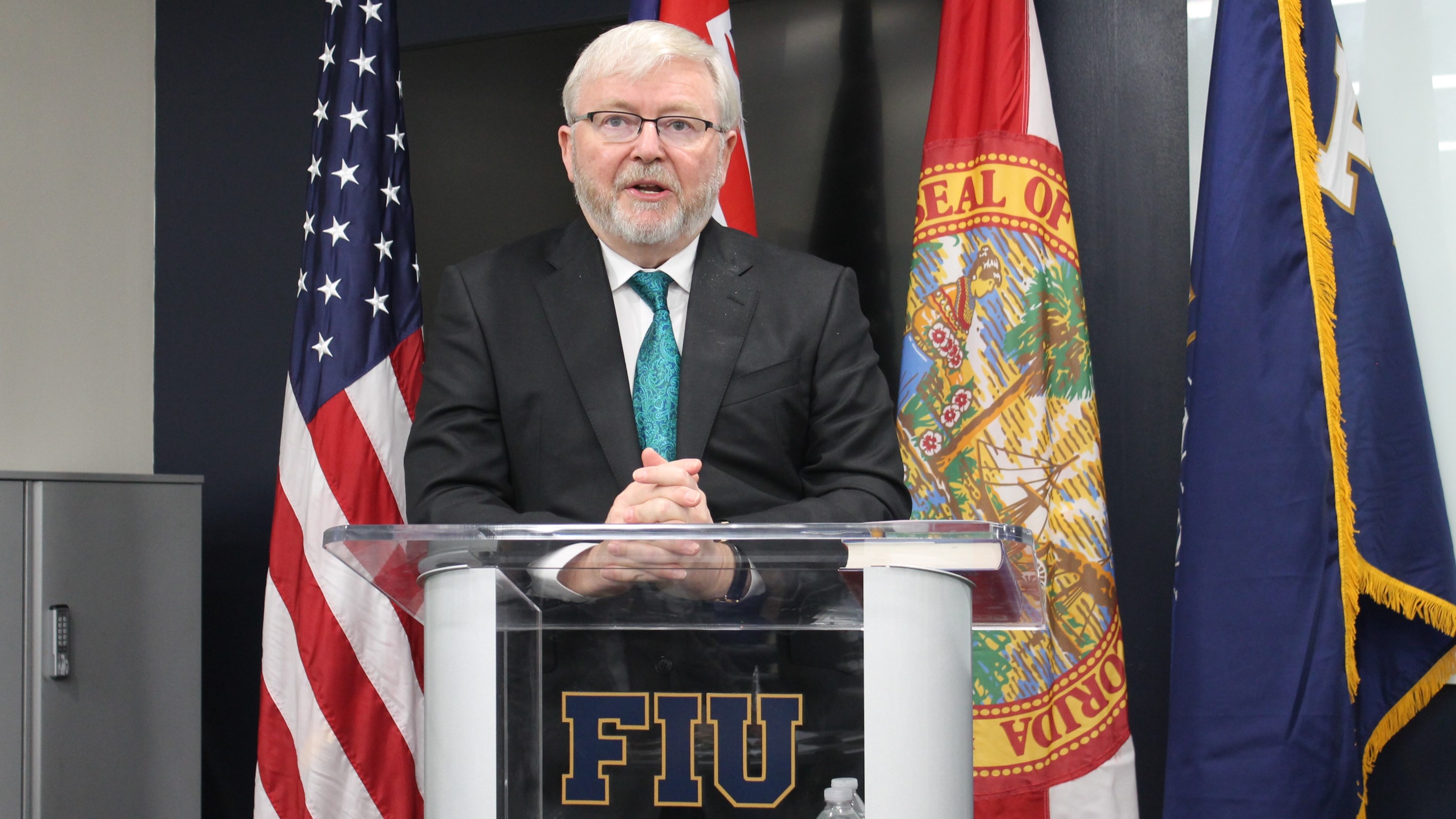In 2014, when China’s foreign policy changed from focusing on strategic engagement to strategic competition, President Xi Jinping began emphasizing the country’s desire to grow their economy into a more of a western market-based powerhouse. These Chinese political and historical shifts were shared by Kevin Rudd, Australia’s Ambassador to the U.S. and a former prime minister, at a February 5 lecture sponsored by the Steven J. Green School of International & Public Affairs where he addressed “U.S.-China relations and the Indo-Pacific: the view from Australia.”
“Xi is committed to making China the dominant world economic power,” said Rudd. He analogized their overall strategy as ten concentric circles Xi utilizes to position his country to succeed. First and foremost, in the center, is keeping the Chinese Communist Party and Xi in power; second, is securing and then maintaining national unity, including Taiwan; and third, is growing the economy with technological advances to be the strongest in the world.
A lifelong student of China, Rudd has visited China more than 100 times and is fluent in Mandarin. He is the author of several books, the most recent one being “The Avoidable War: The Dangers of a Catastrophic Conflict between the U.S. and Xi Jinping's China.”
“In the last 10 years, China succeeded in growing their economy and living standards to satisfy the basic needs of their huge population; they have grown their military strength, as the Chinese haven’t forgotten the brutality of the Japanese during the 1940s,” said Rudd. China continues to project their strength beyond their borders, as evidenced by the increased military presence around Taiwan.

Another such concentric circle involves China’s diplomacy toward neighboring states. Xi’s philosophy is to maintain compliant neighbors to secure China’s borders – and with this comes pushing the U.S. back from its forward positioning in Southeast Asia. Beyond that, China is extending its influence into the West and beyond its continental periphery. “We’ve already seen in Latin America and Africa how China wants to connect to the countries in which there are resources to exploit,” said Rudd.
Rudd said China’s goal is to reform the global order, reject fundamental human rights and make the world’s markets dependent on them. There is pushback from 46 U.S. allies focused on sustaining the balance of power to achieve long-term stability and protect smaller countries’ sovereignty.
Rudd also presented a sweeping view of China’s history of repeatedly opening and closing to the West. He emphasized to never count them out because of their relative patience and understanding of how long it may take other nations to establish alternative supply chains.

